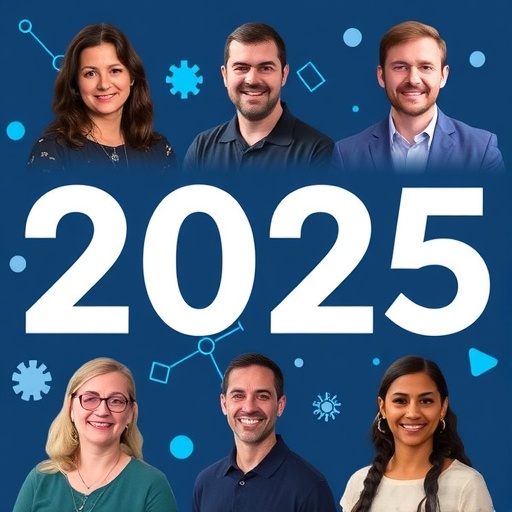The Allen Institute has announced the selection of its 2025 Next Generation Leaders (NGL), a distinguished cohort of eight promising early-career scientists spearheading innovative research across diverse domains within bioscience. This select group represents the vanguard of bioscientific inquiry, working on projects with profound implications for advancing human health and deepening our understanding of fundamental biological mechanisms. The announcement underscores the Institute’s commitment to fostering scientific excellence through a pioneering program that integrates principles of big science, team collaboration, and open data sharing.
The NGL program identifies and empowers emerging talent who demonstrate the capacity not only to excel in their respective areas of study but also to contribute creatively to interdisciplinary scientific discourse. These scientists are singled out for their sharp trajectories and the potential to influence the future of biomedical research. By joining the Allen Institute’s vibrant research ecosystem, they gain access to unique resources and an expansive platform to amplify their scientific impact beyond traditional academic settings.
This cohort includes researchers whose expertise spans neuroscience, immunology, cell biology, and theoretical biology. Their collective work exemplifies the cross-disciplinary approach the Allen Institute espouses, catalyzing convergent research efforts aimed at tackling some of the most pressing challenges in understanding complex biological systems. Such diversity in scientific backgrounds enriches collaborative possibilities, fostering an environment ripe for paradigm-shifting discoveries.
Since its inception in 2014, the Next Generation Leaders program has been instrumental in building a dynamic network of early-career scientists engaged with the Institute’s mission-driven initiatives, including ambitious moonshot projects. Over the course of a three-year tenure, NGL participants immerse themselves in cutting-edge research, contribute to large-scale scientific endeavors, and adopt open science approaches that democratize data and methodologies. Their involvement accelerates the Institute’s capacity to generate impactful knowledge and facilitates deeper integration of innovative perspectives into ongoing projects.
One of the key aspects of the NGL program is the synergistic exchange between cohort members and senior investigators at the Allen Institute. This interaction cultivates a fertile ground for intellectual cross-pollination and mentorship, balancing fresh ideas with seasoned expertise. Such engagement not only enhances the quality and creativity of research but also prepares the Next Generation Leaders to become future scientific ambassadors, advancing open science principles throughout their careers.
The Institute’s leadership highlights the program’s role in shaping emerging science leaders who are well-equipped to navigate the collaborative, data-intensive landscape of modern bioscience. Julie Harris, Ph.D., Vice President of the Office of Science and Innovation, emphasizes their outstanding scientific rigor and the trajectory for these scholars to effect meaningful change both within and beyond their fields. This forward-looking stance aligns with global priorities aimed at translating fundamental research into tangible health benefits.
Among the members of the 2025 cohort are scientists from globally renowned institutions, each bringing a unique research focus that complements the Institute’s multifaceted vision. Their combined expertise spans the neural circuit dynamics, immune signaling pathways, molecular mechanisms of cell function, and theoretical modeling of biological systems. This breadth equips the group to tackle complex biological questions that require integrative approaches and sophisticated analytical techniques.
The NGL experience provides invaluable exposure to the inner workings of a major research institute dedicated to open science—an ethos grounded in transparency, reproducibility, and communal knowledge sharing. Testimonies from former participants highlight the eye-opening nature of this involvement, which illuminates the collaborative culture vital to pioneering bioscientific breakthroughs. These insights support both individual career development and the collective advancement of the scientific community.
Additionally, the cohort benefits from access to the Allen Institute’s cutting-edge technologies, comprehensive datasets, and methodological expertise, which amplify their capacity to conduct high-impact investigations. Whether leveraging advanced imaging systems, genomic tools, or computational models, the researchers operate at the forefront of technical innovation, underscoring the Institute’s commitment to integrating novel methodologies that accelerate discovery.
The NGL initiative also serves as a conduit for translating research insights into broader applications aimed at improving human health outcomes. By fostering early-career leaders versed in open science and multidisciplinary collaboration, the program nurtures a generation of scientists prepared to confront societal challenges through science-driven strategies. Their work holds promise for nurturing treatments and interventions that can alleviate diseases once considered intractable.
Beyond its scientific contributions, the program exemplifies a holistic approach to research culture, emphasizing mentorship, diversity of thought, and the breaking down of traditional silos within academia and research institutions. This progressive framework nurtures scientists who are adaptable, networked, and poised to drive innovation on a global scale, reflecting the evolving nature of twenty-first-century science.
In essence, the Allen Institute’s 2025 Next Generation Leaders embody the synergy between exceptional talent, collaborative infrastructure, and visionary leadership necessary to propel bioscience into new realms of understanding and application. Their selection highlights the vital importance of cultivating early-career researchers who not only produce groundbreaking science but also champion open, inclusive, and impactful scientific practices.
Subject of Research:
Early-career bioscience researchers advancing neuroscience, immunology, cell biology, and theoretical biology through collaborative, open science initiatives aimed at understanding complex biological systems and improving human health.
Article Title:
Allen Institute Unveils 2025 Next Generation Leaders Driving Innovation in Bioscience
News Publication Date:
November 4, 2025
Web References:
https://alleninstitute.org/about/people/next-generation-leaders/
Image Credits:
Allen Institute
Keywords:
Research programs, Scientific community, Early-career scientists, Bioscience innovation, Open science, Neuroscience, Immunology, Cell biology, Theory, Collaborative research




